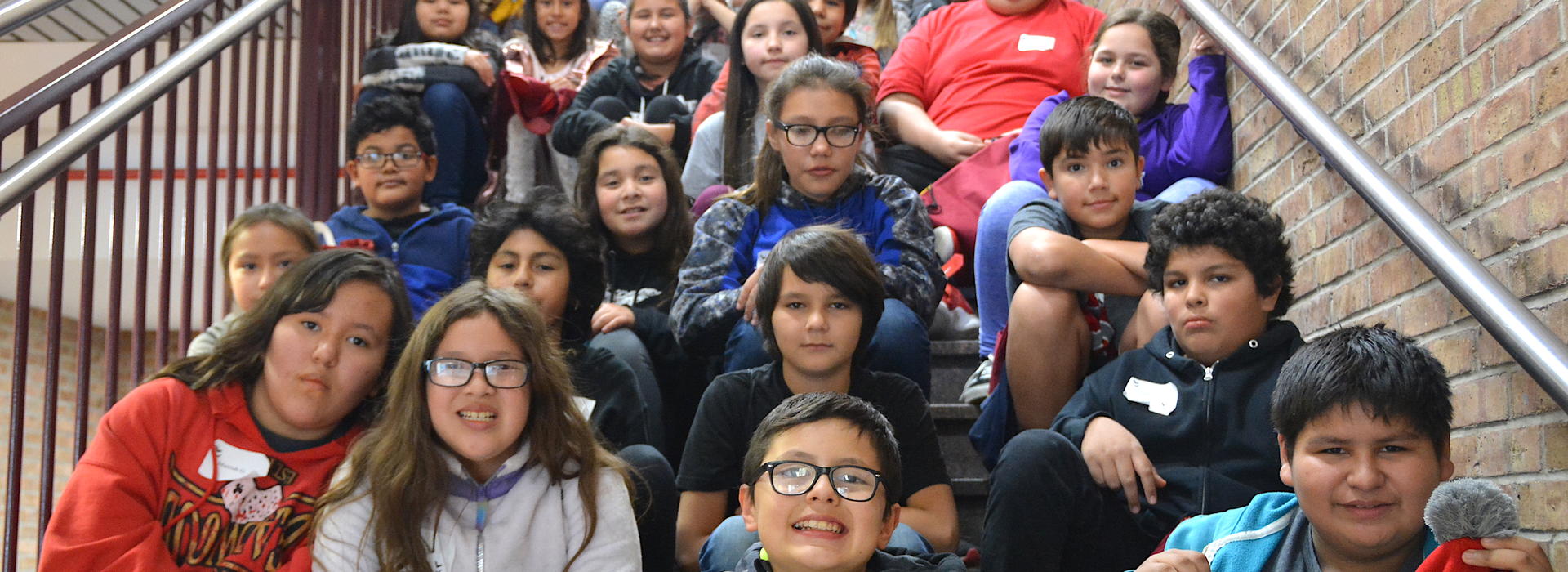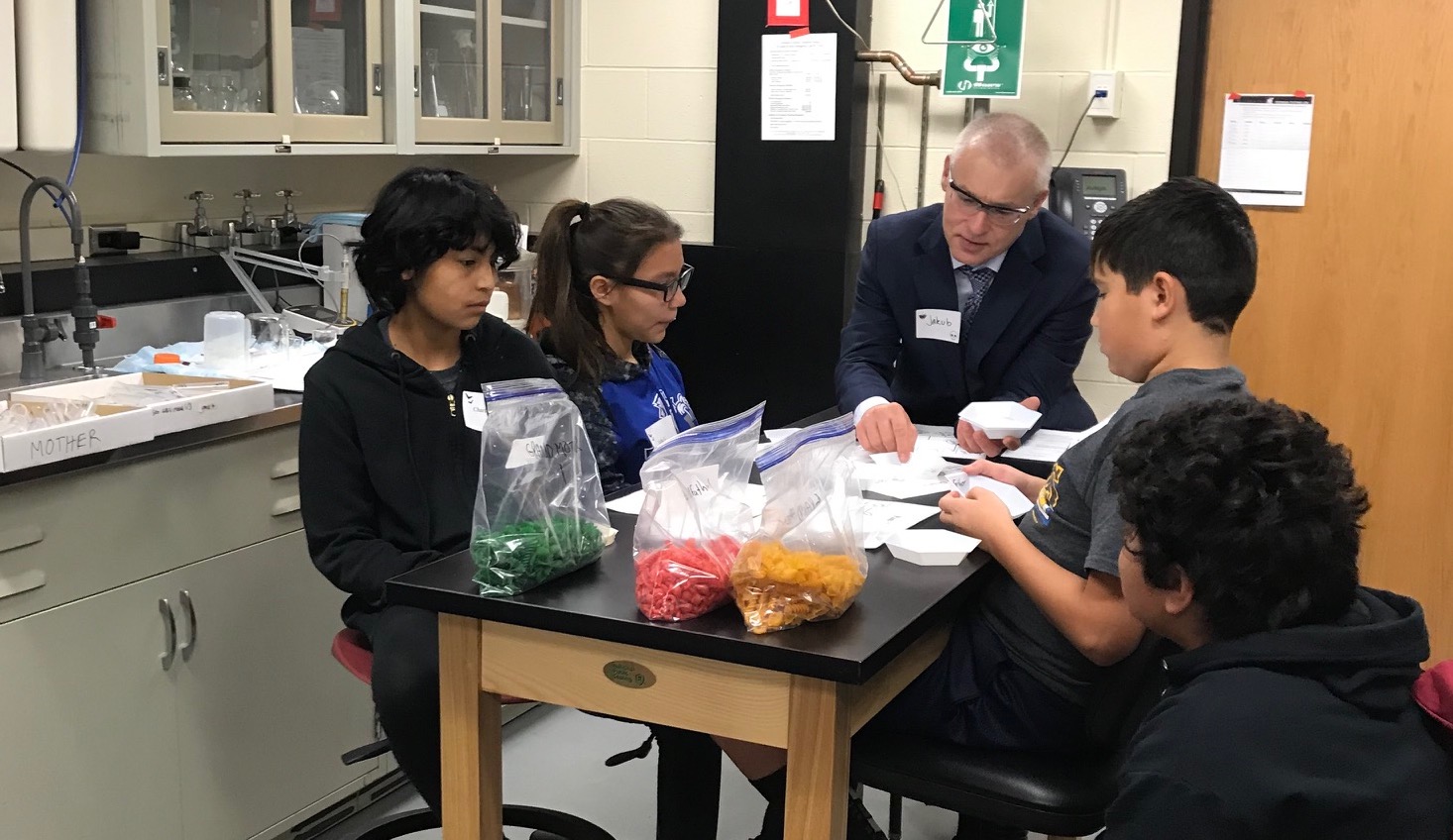
Sparking Interest in Science through Zombie Flies and Pasta Genomics at the University of Minnesota Medical School, Duluth
The University of Minnesota Medical School, Duluth campus recently welcomed more than 40 young students from Nett Lake Elementary School. Located about two and a half hours north of Duluth, the elementary school resides within the Bois Forte Band of Chippewa community. Their visit, which is part of the elementary school’s regular science curriculum, is one touchpoint in a larger outreach effort that works to inspire younger students toward careers in medicine.
Anna Wirta Kosobuski, EdD, who is an assistant professor in the Department of Biomedical Sciences, leads the events, which are part of a Regenerative Medicine Minnesota project she manages.
“The project encourages life-long love of science and pursuit of post-secondary science education and careers for Native American students in kindergarten through sixth grade,” Wirta Kosobuski said. “The project is in close partnership with Nett Lake Elementary School and provides year-round, culturally responsive, community-based science programs.”
In the elementary school’s first of two visits scheduled this year, students learned about genetics and how those genes passed down from one generation to the next to create unique people.
A group of sixth-graders led by Rich Melvin, PhD, who is an assistant professor in the Department of Biomedical Sciences, used colored pasta sorting to illustrate genetics, along with a playful Halloween-themed observation of flies. Each fly, which was “developed in a laboratory,” had either bat wings, white eyes and black bodies or glowed under a fluorescent light.
This fall, the Duluth campus welcomed its largest class of Native American medical students, where 20% of the total class identifies as Native American/American Indian. Medical School Dean Jakub Tolar, MD, PhD, who sat alongside some of the elementary students, believes these community-building events will continue the Medical School’s success in recruiting students who are underrepresented in science and medicine.

“This visit is just one example of the many support systems offered by the Medical School’s Duluth campus that break down the artificial barriers to a quality education for Native American students,” Dean Tolar said. “Often, it is in these experiences on our campus that students realize and begin to believe that college is for them—that science and medicine is for them. I am proud of the work led by Dr. Wirta Kosobuski and our faculty, which is helping us build a more diverse, inclusive workforce that will transform the future of patient care and medical education.”
“As Minnesota’s only public, land-grant university, it is vital for us to work within the communities that need more attention throughout Minnesota, versus working with them,” he continued. “Programs like this on our Duluth campus open up the pathways for communication between remote students and our educators that provide a meaningful entry to make a lasting impact.”